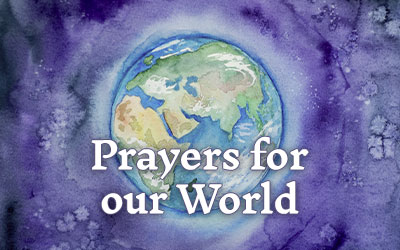China: The New Normal for Christianity

A few years ago, Rob Gifford, author of China Road: A Journey into the Future of a Rising Power, spoke at a ChinaSource conference in Hong Kong. He talked about the economic and social challenges that were likely to force China into drastic restructuring, noting that demographics alone would require it to move from being a labor-intensive, manufacturing-based economy to something else. ‘One thing is certain’, Gifford said, ‘the next 30 years in China cannot look like the last 30 years.’
More recently, this sentiment was echoed by China watcher Bill Bishop, who wrote in November in the Axios[2] newsletter that ‘we have to accept that China under General Secretary Xi Jinping is materially different from the China we knew under Hu Jintao and Jiang Zemin.’
One way that China is ‘materially different’ under Xi Jinping is a significantly tighter political environment. After three decades of loosening Communist Party control and expanding freedoms, Xi is systematically trying to reassert Party control over all sectors of society. This is behind so many of the reports we have seen of late of crackdowns and growing harassment/persecution of believers. However, the crackdowns are part of something much broader and it is a misinterpretation to assume that they are simply targeted at religion in general, or Christianity in particular.
This new political environment is impacting both local believers in China and foreign workers whohave been serving the church in China.
End of the era of openness
The past few decades have seen an increased openness for churches and believers.[3] The urban house church movement came into its own. Unlike the rural house church movement that had grown up during the era of intense persecution and of necessity had been ‘underground’, these urban house churches are often public (complete with websites) and have adopted a less confrontational stance towards the government. The goal has been to show the authorities that they are not a threat.
Even though religious regulations were not changed, enforcement was relaxed, leading to an expanded gray zone that allowed for the growth of Christian publishing, media, and education. Local officials had leeway in overseeing religious affairs in their jurisdictions, and some even cultivated relationships with church leaders. This contributed to a more relaxed environment as Christians could offer assurances of not being a threat. As long as local churches and believers did not cause trouble, they were largely left alone.
For the foreign Christian community serving in China, the past few decades have been marked by increasing openness as well. While still not being allowed to engage officially in religious work, foreign Christians could live and work in China on a variety of legitimate visa platforms. These included teaching, studying, operating registered commercial enterprises, and establishing locally-registered NGOs. Some were working independently, while others were quietly part of sending organizations. So long as their visa and residence permission papers were in order, they were operating their businesses according to local laws and regulations and were considered to be providing legitimate services to the community, their presence was tolerated.
The ‘New Normal’
The new environment, or ‘New Normal’[4] as it is sometimes referred to, is making things more difficult for local believers. In 2018, the government issued a new set of religious regulations that make it significantly more difficult for unregistered churches (house churches) to function. Penalties can be levied against landlords who rent to unregistered groups, and local officials are under pressure to be stricter in their enforcement of these regulations. As a result, a few large, high-profile house churches have been closed and their leaders detained. Other larger house churches have made plans to divide (or have divided) into smaller churches should the need arise. In some ways this can be seen as Communist Party-led church multiplication.
Registered churches (‘Three-self’ churches) are also feeling the pressure, with more political rhetoric and directives to ‘Sinicize’.[5] Many registered church leaders now have to spend more time managing their relationships with government officials, leaving less time for shepherding the flock.
Read the full report here: https://www.lausanne.org/content/lga/2019-05/the-new-normal-for-christianity-in-china?utm_source=Lausanne+Movement+List&utm_campaign=0f41363ced-Lausanne_Global_Analysis+-May2018&utm_medium=email&utm_term=0_602c1cb67d-0f41363ced-91691477
Pray: that the doors will re-open to Christian workers and mission agencies.
Pray: for those being persecuted and marginalised because of their faith.
Pray: for protection of those 'at risk'


